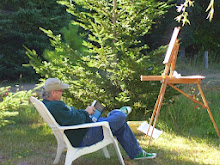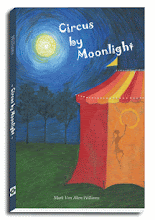In his paper, “The Quest for the National Character”, David M. Potter raises some interesting questions concerning our national character. To paraphrase; I would say that unlike most countries in the world today, the United States is not ethnically rooted in the land where we live. We, for the most part, are recent arrivals, which may effectuate our compulsive preoccupation with the question of our Americanism.
He doesn’t believe that anyone would argue the fact that when one’s ethnic, religious, linguistic, or political heritage is amalgamated, nationality can not exist without the form of a common commitment to shared values, an approbation for certain qualities of character, and a common set of transient traits and attitudes.
Here are two images for you to ponder: (A) Americans can primarily be seen as individualists and idealists, and (B) They are conformists and materialists.
The individualist theory starts the moment when a person made that decision to migrate. It is a story as old as the country itself, no matter what the country of origin. It is a story that is happening today. Someone in Mexico, or Morocco, or any other number of countries, is making that decision today. Our myth of ourselves tells us that it is related to the resourcefulness of the early pioneers, constantly confronted with circumstances in which he could rely on no one but himself. I guess we can thank Frederick Jackson Turner for this. Thomas Jefferson’s argument was for equalitarianism.
Here is a question for you: Are equalitarianism and individualism inseparably linked, or even a sanctioned ambiguity in the American creed? Alexis de Tocqueville didn’t think so.
According to him, “When the inhabitant of a democratic country compares himself individually with all those about him, he feels with pride that he is the equal of any one of them; but when he comes to survey the totality of his fellows, and to place himself in contrast with so huge a body, he is instantly overwhelmed by the sense of his own insignificance and weakness.”
As for the other side of the coin, in 1823 William Faux proclaimed, “Two selfish gods, pleasure and pain, enslave the Americans.” The American pursuit of happiness took a detour very early in our history. It was Washington Irving who coined the phrase, “the almighty dollar, that great object of universal devotion throughout the land.” Yet we have grown to become one of the riches nations in the world. So, is this a bad thing?
So where am I going with this? I guess I’m contemplating whether some kind of identifiable American character exists.
I tend to consider the intangibles. One, for sure, is that I can pick out another American at any airport in the world. I’m not sure if it is how we carry ourselves, look, or act, but rest assured, I’ll pick you out of a line-up. And don’t think any of you Canadians think you can get past me. I can smell your European pretentiousness, a mile away. I understand that this is not an original idea, but it is 100 per cent fool proof.
"The essential American soul is hard, isolate, stoic and a killer," claimed D.H. Lawrence. Is this what we see in each other? For those of you, who read history, remember they used to carry guns in the House of Representatives, and fire them off when they were upset about something. ... Andrew Jackson walked around with two bullets in him for most of his life. Theodore Roosevelt once told a reporter that the grizzly bear should be the symbol of America, not the eagle.
Barack Obama argues in his new book The Audacity of Hope, "We are becoming more, not less, alike.” So, are we just looking into a mirror?
Or do we just have an uncanny ability to recognize the ambiguity of individualism and acquisitiveness in each other’s eyes?
Subscribe to:
Post Comments (Atom)







No comments:
Post a Comment